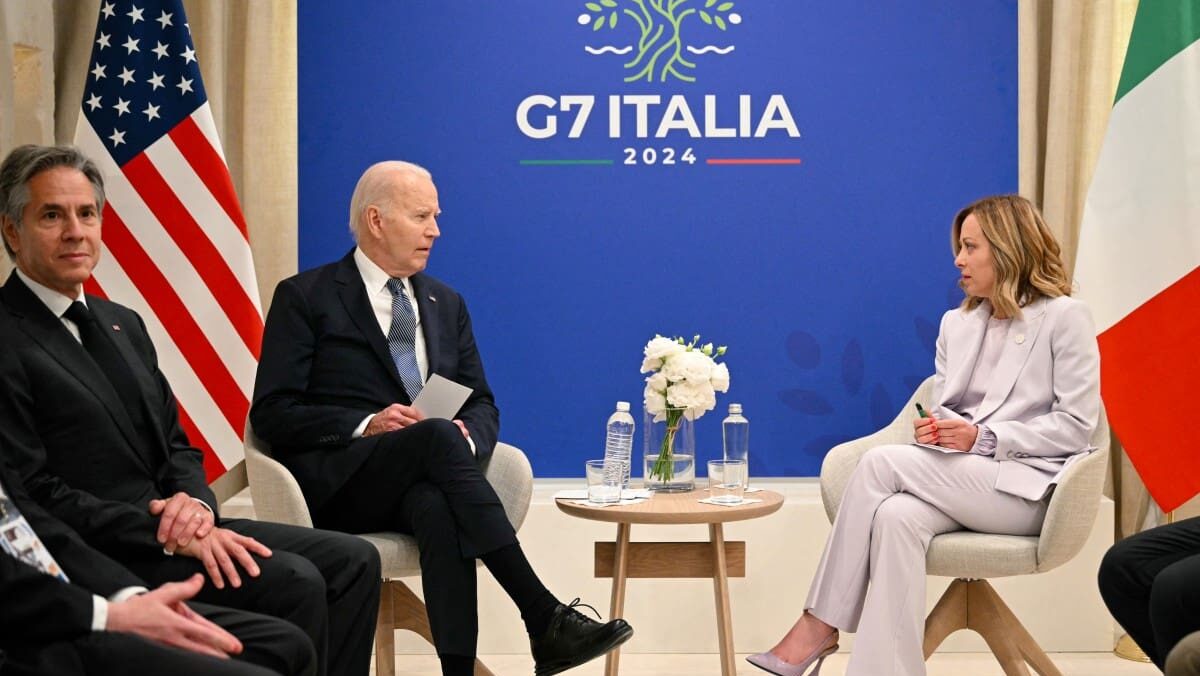
U.S. President Joe Biden and Italy’s Prime Minister Giorgia Meloni take part in a bilateral meeting on the sidelines of the G7 Summit at the Borgo Egnazia resort in Savelletri, Italy on June 14, 2024.
Photo: Photo by Mandel NGAN / AFP
The G7 has agreed to new war funding for Ukraine at its summit in Italy. It declared it will lend $50bn, with the loan interest paid for from Russian assets seized following the country’s invasion of its neighbour. The decision was announced on Thursday, June 14th.
Assets worth around $325 billion (€304 billion) have been frozen by the G7, European Union, and European Central Bank since 2022, generating about $3 billion a year in interest. Under the new plan, that money will be used to pay off the annual interest on the $50bn loan to the Ukrainian government. It follows $61 billion in U.S. military aid agreed last month following extensive wrangling in Washington.
By tying Ukraine’s funding to frozen Russian assets, the G7 has signalled that nominal spending limits apply to this particular aid package, as opposed to a more open-ended promise of military assistance. By avoiding the appearance of a ‘blank cheque,’ such budgeting could well have been devised with one eye on a Donald Trump administration taking office in November.
The same meeting saw presidents Volodymyr Zelensky and Joe Biden sign a 10-year bilateral security deal between Ukraine and the U.S. This will allow U.S. military aid to Ukraine—including training—without commitment to American ‘boots on the ground’ in the form of deploying troops.
The White House describes the deal as one designed to build and maintain Ukraine’s defensive capabilities, act as a deterrent, strengthen its defence industries, and—with some ‘mission creep’ from formal security goals—boost economic recovery and energy security. The culmination of 12 months of complex negotiations, its critics could still see it as a ‘slippery slope’ to further escalation.
Although the focus of the U.S.-Ukranian pact is on current Russian aggression, it also involves planning against future attacks, with a promise of consultation (emphasis added) “at the highest levels to determine appropriate and necessary measures to support Ukraine and impose costs on Russia.”
While the funds are unlikely to be in use before the end of the year, Moscow spokeswoman Maria Zakharova has already threatened “extremely painful” retaliatory measures.
